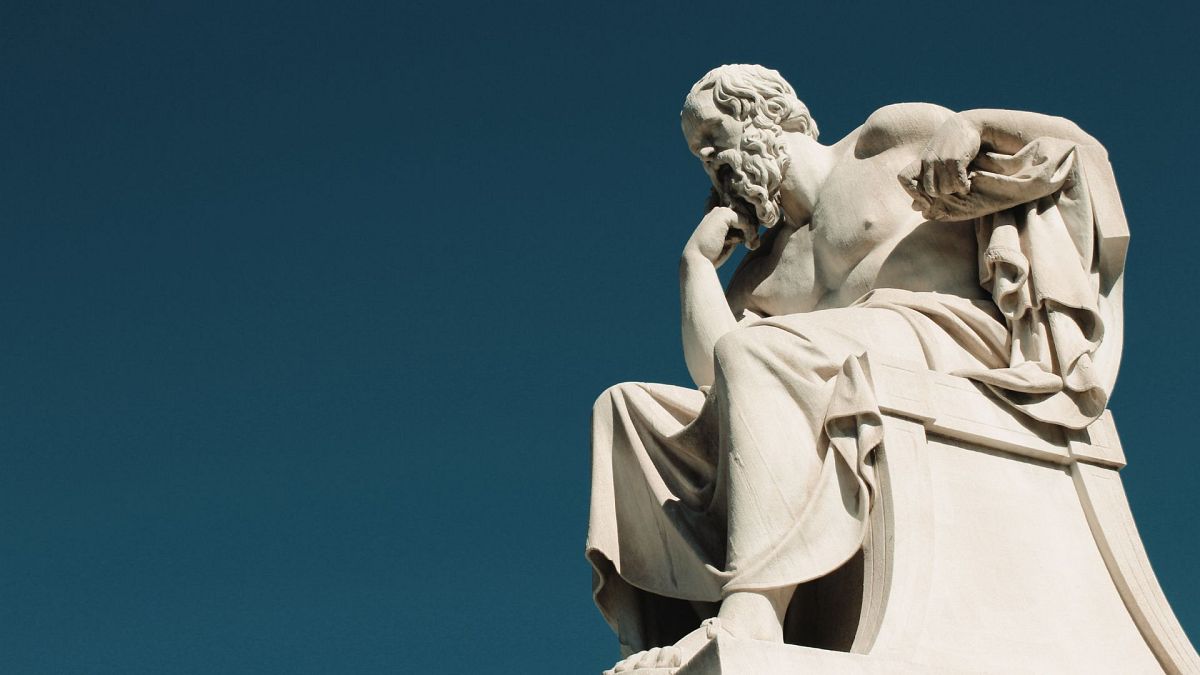In Plato’s cave, humans watch silhouettes flicker on the wall, unaware that fires just behind them are distorting reality into a shadow world – not unlike the world we find ourselves in today, aided by social media and artificial intelligence (AI), argues the former Greek prime minister George Papandreou.
According to Plato’s scenario, if someone escaped the cave, their eyes would be overwhelmed by the sunlight, but once adjusted, they would see the world for what it truly is. However, the escapee would not be able to rescue the others, because they would be unable to convince them to leave the cave.
Though Plato wrote his cave allegory around 380 BC, he may as well have been writing today about the future of democracy and AI, according to Papandreou, who served as Greece’s prime minister from 2009 to 2011 and is a current MP of the Hellenic Parliament.
“Plato is saying we can get very much stuck into these worlds and think it’s a reality, and [become] very, very reactive to any kind of change that may happen,” Papandreou told Euronews Next at the United Nations’ AI For Good Summit in Geneva.
Despite the tech industry’s push to position AI as the foundation of all human knowledge, Papandreou thinks Plato would see AI not as the sunlight outside the cave but as the shadows inside: intriguing and persuasive – but misleading, and far from the truth.
That doesn’t mean AI won’t continue to have a major impact on the real world, though, according to Papandreou.
“AI is impacting our culture,” he said. “It’s the way we think about the world, the way that we communicate, and our culture is also, I would add, our political culture in a democracy”.
Socrates’ possible take on AI
Plato’s mentor Socrates, a staunch defender of knowledge and wisdom, called out the flaws of democracy and was ultimately killed for it.
In one discussion between Socrates and the orator Giorgias – who trained young people how to debate and win arguments in order to gain power – Socrates argued that people should debate respectfully with the goal of understanding each other, rather than bully others to win arguments.
There’s a close parallel with today’s debates on the impact AI will have on social media platforms, Papandreou said.
He questioned whether social media platforms “help for real debate or do they push polarisation? Or with our likes, our thumbs up, our thumbs down – is it trying to dominate? Is it bullying? Is it polarising?”
Papandreou believes that in today’s world, Socrates would interrogate AI’s role in society, including its purpose, whether it will help create a just society or put power into the hands of only a few people, and whether it promotes the truth and furthers our understanding of the world.
Socrates’s answer, Papandreou believes, would be that today there are many paradoxes and threats to democracy – including AI.
“On the one hand we say [the] internet, and of course AI, [are] democratising, on the other hand we have it highly centralised, so who controls the algorithms, and who owns AI?”
“One of the ideas that democracy was invented was to make sure that power is not concentrated,” he added.
Applying lessons of the Ancient Greeks
Papandreou believes governments today should take a leaf out of Ancient Greece’s book, where citizens met to debate and vote on proposals in one of the earliest examples of the democratic process.
Today, that could look like a government platform for every citizen to debate issues such as AI.
This would give everyone a voice, including women and migrants, to let them have a say in policy and no decision by the government would be decided without this deliberative process.
In ancient Athens, there were admittedly fewer citizens, who could sit across the Acropolis and be heard. However, with today’s population this becomes trickier.
Given today’s world population outpaces ancient Athens’ by a wide margin, Papandreou said a modern version could be an online platform that allows citizens to debate issues such as AI and sends feedback to governments, giving everyone a voice in policymaking.
Such tools would need to be thoroughly vetted, he said, and should be used to empower citizens – not for surveillance.
But in an age of information overload and claims that AI knows everything, it’s not just governments that can learn from the Greek philosophers’ approach.
Studies show that AI may be eroding people’s critical thinking skills – which Socrates and Plato certainly would not have gotten behind, Papandreou argues.
“I think that’s where we need to be, not be a brain to store information, but to be a brain that thinks about the information we’re getting and understand what might be valid or may not be,” he said.
Humility may be another key to using these tools effectively.
In one story from Plato’s Apology text, Socrates decides to investigate his reputation as the wisest person in Ancient Greece. He questions politicians and artists – only to discover that those who claim to have knowledge actually know less than they think.
Plato instructs us that if we acknowledge how little we know, we have more space for questions, dialogue, and true understanding.
Perhaps in the AI era, Socrates’ best-known quote may be more relevant than ever: “The only true wisdom is in knowing you know nothing”.

